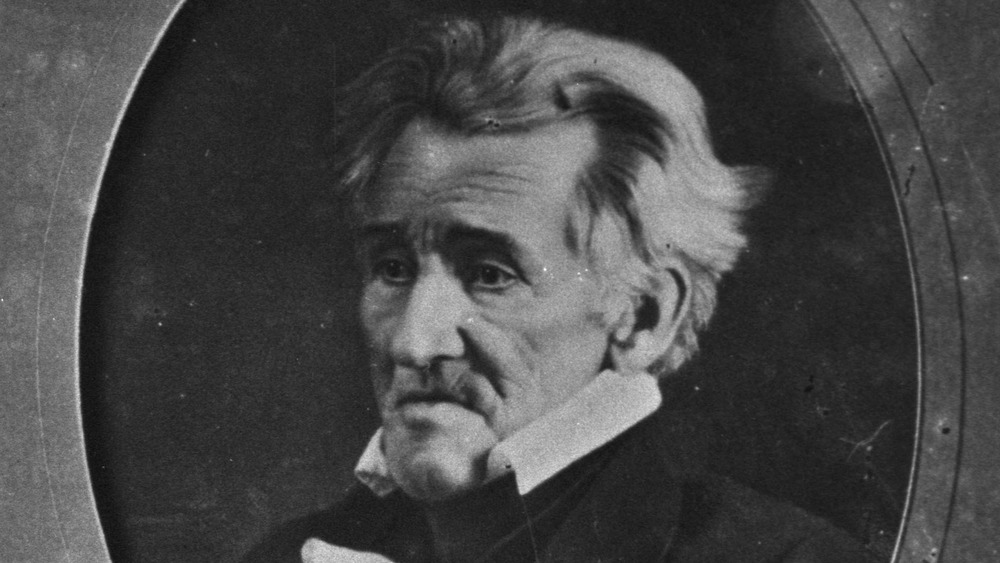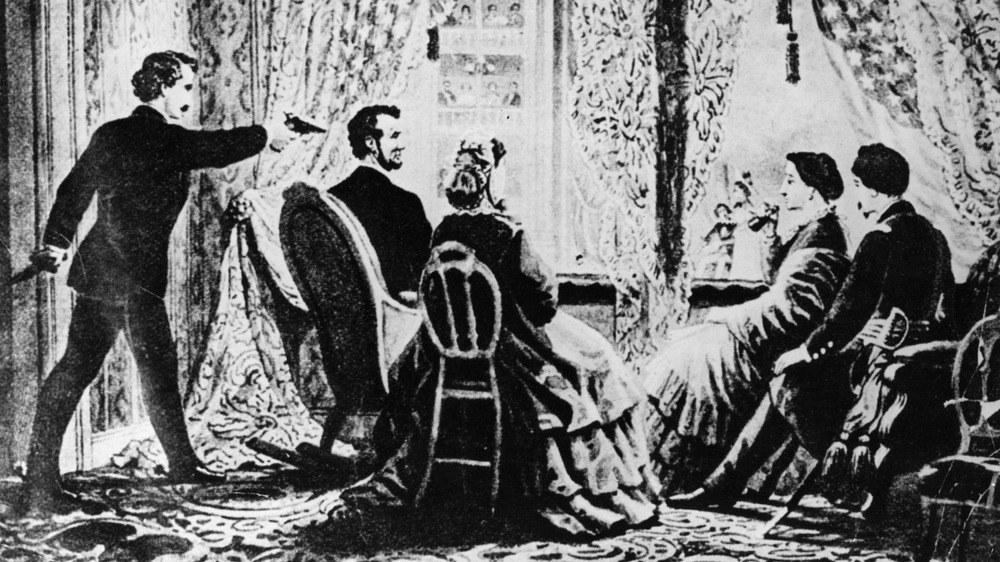A Look At The Assassination Attempt Against Andrew Jackson
One of every five presidents since 1865 have faced an assassination attempt, according to the National Archives, with four, unfortunately, successful in killing the nation's leader: Abraham Lincoln, 1865; James A. Garfield, 1881; William McKinley, 1901; and John F. Kennedy, 1963.
Security only tightened after McKinley's death with new protocols employed to keep the president safe. Early in America's history, keeping a president secure wasn't a regular concern, the National Archives pointed out. President Thomas Jefferson, for instance, walked to his inauguration at the Capitol without any guards. Even after getting threats in the mail, President John Quincy Adams often strolled and swam in public — he liked to start his day by skinny-dipping in the Potomac River, says Business Insider. President Martin Van Buren spent hours on horseback, riding solo in the woods close to the White House, and often walked to church by himself.
President Andrew Jackson, especially unpopular, experienced an attempt on his life — the first assassination attempt on a U.S. president — when an unemployed house painter from England, Richard Lawrence, tried to shoot him on January 10, 1835. The 67-year-old president and other politicians had just attended a funeral at the Capitol for Rep. Warren Davis. Lawrence pulled the trigger on his derringer pistol, but it misfired.
A thwarted assassination, and then tragedy
President Jackson "confronted his attacker," according to History.com, "clubbing Lawrence several times with his walking cane." As they fought, Lawrence managed to pull out a second derringer, but that, too, misfired: an incredibly fortunate scenario, with the odds of two pistols not working at 125,000 to 1, according to a researcher quoted by Smithsonian. (Among those subduing Jackson's would-be assassin was Congressman Davy Crockett.)
During the court case, the jury voted not guilty, believing Lawrence was insane with various delusions, including the conviction that his father had been killed by the president. Lawrence spent the remainder of his life in jails and mental institutions.
Before the attempt on his life, President Jackson was often sent letters threatening actions against him. The words never bothered the president, who sent the missives to the Washington Globe so the newspaper could publish them. Even when a former Navy lieutenant, Robert B. Randolph, attacked him, President Jackson remained unbothered and would not prosecute the man. The assassination attempt by Lawrence, however, made President Jackson more paranoid about those around him, according to another article at Business Insider. "He accused at least one political opponent of being behind the attack, but law enforcement concluded that Lawrence had acted alone."
Eventually everything settled down. The next attempt on a president's life would wait almost 30 years, until the first — and failed — assassination plot against President Lincoln. Unfortunately, another attempt (pictured above) was successful in 1865.

